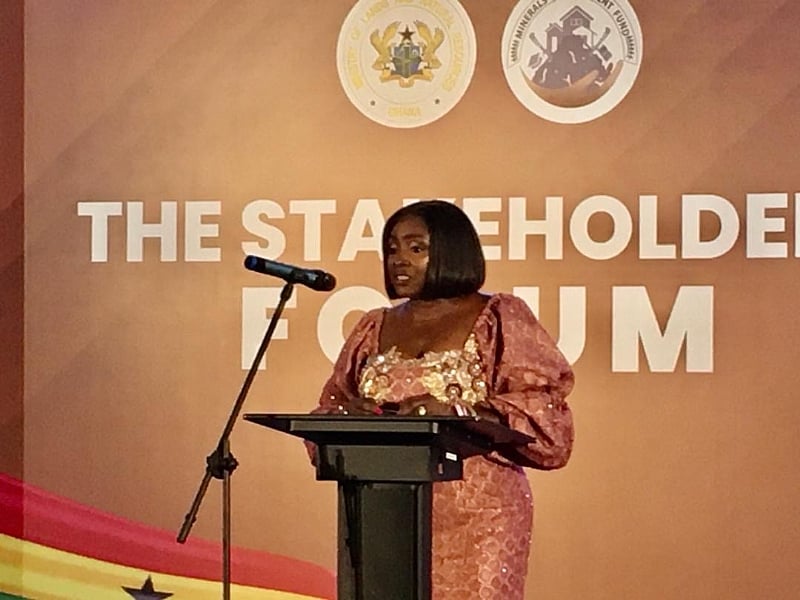The Minerals Development Fund (MDF) of Ghana is embarking on a comprehensive initiative to address the historical inequities faced by communities impacted by mining activities. Recognizing the stark contrast between the mineral wealth beneath these communities and their often-deprived living conditions, the MDF is implementing a multi-pronged strategy aimed at transforming these areas and ensuring a more equitable distribution of the benefits derived from resource extraction. The overarching goal is to shift the narrative from one of exploitation and neglect to one of empowerment and sustainable development, where mining becomes a catalyst for local prosperity rather than a source of hardship.
The MDF’s action plan centers around targeted investments in key areas crucial for community well-being and economic advancement. Access to clean water, a fundamental human right often lacking in these communities, is being addressed through the development of community-wide water supply systems. Education, recognized as a vital pathway to opportunity, is being prioritized through an annual scholarship scheme designed to support 300 students, enabling them to pursue their educational aspirations and contribute to their communities’ future development. Furthermore, the MDF is fostering economic diversification and self-sufficiency through large-scale fish farming projects, with an ambitious target of establishing 100,000 fishponds accompanied by processing facilities. This initiative aims to create sustainable livelihoods, enhance food security, and stimulate local economic growth.
Beyond these foundational initiatives, the MDF is also investing in value-added agricultural processing, exemplified by the construction of palm processing mills. Recognizing the importance of collective action and resource sharing, the MDF is supporting the formation of agricultural cooperatives, providing a platform for farmers to pool their resources, enhance their bargaining power, and access markets more effectively. In addition, the establishment of industrial training hubs is designed to equip young artisans and entrepreneurs with the skills and resources necessary to thrive in the modern economy. These hubs will not only provide skill-based training but also offer startup kits, empowering graduates to launch their own ventures and contribute to the creation of a vibrant local economy.
The MDF’s intervention is driven by a profound sense of urgency and a commitment to rectifying the historical injustices that have plagued mining communities. The administrator of the MDF, Dr. Hanna Louisa Bisiw-Kotei, has eloquently articulated the pressing need for change, highlighting the stark disparities between the immense mineral wealth extracted from these areas and the persistent lack of basic necessities experienced by their residents. She has emphasized the moral imperative to ensure that those who bear the brunt of mining activities are not left behind but instead become beneficiaries of the wealth generated from their land. Her observations paint a poignant picture of children walking miles for clean water, patients struggling to access healthcare due to inadequate infrastructure, and promising young minds denied opportunities despite living atop some of Africa’s richest mineral deposits.
The MDF envisions a future where Ghana’s mineral wealth becomes the cornerstone of national industrial transformation, benefiting not only the nation as a whole but also, crucially, the communities directly impacted by mining. To realize this vision, the MDF is prioritizing collaboration and accountability. It plans to establish a Corporate Social Responsibility (CSR) task force, fostering greater transparency and ensuring that mining companies fulfill their obligations to the communities in which they operate. The implementation of the Polluter-Pays Principle (PPP) is another key component of the MDF’s strategy, aimed at holding polluters accountable for environmental damage and ensuring that the costs of remediation are borne by those responsible.
This comprehensive approach to community development in mining areas is echoed by high-ranking government officials, including the Vice-President and prominent academics. The emphasis is on creating a framework of trust, dialogue, and inclusive decision-making, ensuring that communities have a voice in shaping their own future. The importance of equitable resource governance and the need for sustainable mining practices have also been underscored, highlighting the interconnectedness of economic development, social equity, and environmental stewardship. The call for a national shift towards sustainable and regenerative mining practices reflects a growing awareness of the long-term consequences of unsustainable resource extraction and a commitment to building a future where mining contributes to both economic prosperity and environmental well-being.














